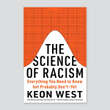There’s no question that the face of America is changing. Those under 18 are the first majority minority generation: 53% are non-White; one in four are Hispanic, and one in five are the children of immigrants. But while evolving racial demographics are reshaping rising generations, we are no longer a young nation: by 2030, Americans older than 65 will outnumber those under 18, a major deviation from 2000 when 26% were under 18 and just 12% were over 65. Add to that a widening wealth gap: The gap between top one fifth incomes and bottom one fifth incomes has increased by 53% in the past decade.
To better understand the impact of these changes on the mindset and needs of this evolving populace, BBG Ventures conducted a study with 2,000 Americans—large enough to be statistically relevant across race, gender, age, income, and geography. Our expectation, given the growing divide in the U.S. was that we would find major differences among racial groups, genders, and generations. But while it’s clear that Americans define their identities based on a unique perception of their place in the world, we actually have common priorities, needs, and concerns across nearly every age group, race, and gender.
Health and Financial Security are the top two priorities for every race and gender, and nearly every age group. The exception is that those under 18 place Employment and Education as their top priority followed by Health.
Health
When we dig deeper into health and well-being, Mental Health is the number-one concern, driven by finances, stress, and loneliness. After Mental Health, nearly every segment noted Sleep as their second highest priority.
While there are varying degrees of satisfaction with interactions between Americans and their doctors/care providers, there is close to unanimous agreement on the most desired improvement. Notably, the ability to see a doctor virtually came in last for nearly all segments. Rather, Americans want their doctors to provide personalized care, including culturally competent care; have better availability for appointments; and be more present and less distracted during visits.
Financial Security
As for Financial Security, the majority of Americans across nearly every segment lack confidence or feel neutral about their financial literacy (54%). Even more lack confidence or feel neutral about their financial position (65%). Paying bills consistently is the number-one financial goal for nearly all races and generations, followed by saving for an emergency fund. The high cost of living and inflation is the number-one factor preventing people from building wealth. This is despite the U.S.’s so-called “superstar status” when it comes to GDP growth, historic unemployment rate lows, increasing household wealth, and wage growth versus costs. Whatever the stats say, the pain of high costs is firmly planted in American minds.
Opportunity for entrepreneurs and investors
What do we take away from this? The emergence of America’s Polyculture, in and of itself, should not drive an “us and them” mentality, despite what social media might make you believe. The primary concerns and greatest needs of Americans across race, gender, and age are the same—and the presence of common needs suggests that the opportunity for transformative solutions is bigger than the sum of its parts.
We can build highly scaled solutions; but how we go to market, and the user experience itself, will demand a new level of personalization that reflects our evolving polyculture. Here’s how entrepreneurs and investors can not only spread this message, but drive meaningful change:
Prioritize mental health in product development
Mental health is the top concern for most Americans, especially younger generations. We need a focus on developing tools that address mental health challenges, such as stress management, loneliness, and sleep improvement, along with availability. It’s important to acknowledge that platforms have entered the market to solve for this in the 2020–2021 boom, but there remains room for innovation in integrating mental wellness into broader ecosystems and creating more culturally competent and personalized care. What we now need are founders who bring nuance to the approach, particularly for the younger generation who live their lives online. Further, integrating mental wellness into broader product ecosystems, whether in healthcare or tech, is essential to meet this growing demand.
Address financial insecurity with accessible solutions
We found that 65% of Americans lack confidence in their financial position. Startups have a significant opportunity to build tools that empower financial literacy, provide budgeting assistance, and help with wealth-building strategies. Platforms that personalize financial advice or automate savings and debt management could close the confidence gap and improve financial outcomes, particularly for underserved communities. Again, tools exist today to help people manage their finances, but more can be done to address specific challenges faced by different communities, particularly the 54% lacking confidence or feeling neutral in their financial position.
Innovate for workforce flexibility and career shifts
We found that 84% of employees are considering a career change. While job numbers may wax and wane, 84% suggests a larger job dissatisfaction epidemic in this country. Platforms that support career transitions, entrepreneurship, and freelancing, or offer new pathways for upskilling, job flexibility, or alternative work arrangements will tap into the dissatisfaction with traditional employment and enable people to stay productive well past traditional retirement age. Many Americans still need better tools for career transitions, freelancing, and upskilling, particularly with college enrollment at the lowest levels we’ve seen in three decades.
Simply building scalable solutions isn’t enough; while existing platforms have made strides in addressing the mental health, financial security, and workforce concerns that Americans share, there is still much work to be done. Entrepreneurs and investors must prioritize personalization and cultural competence as they develop the next generation of solutions. By doing so, they can help not only transform individual lives but innovate in a way that reflects the complexity of America’s polycultural future.Nisha Dua and Susan Lyne are cofounders and Managing Partners of BBG Ventures (BBGV), a seed and pre-seed venture fund backing high growth. For more information visit www.bbgventures.com, follow on bbgventures and connect on BBG Ventures.








No comments